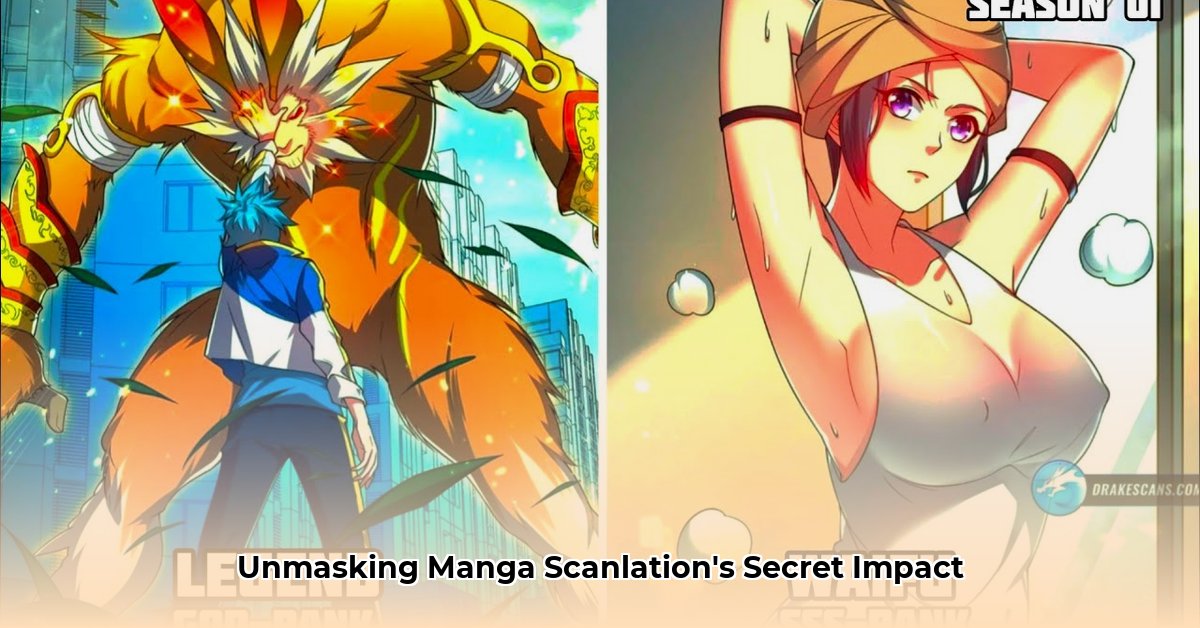
Manga's global popularity has fueled a vibrant, yet legally complex, ecosystem of fan-driven translations. Groups like DrakeScans, though lacking readily available public information, represent a crucial part of this landscape. This article explores the world of manga scanlation, its ethical considerations, and the future of this passionate community.
The World of Manga Scanlation
Scanlation—the process of scanning, translating, typesetting, and cleaning manga chapters—is a multifaceted undertaking. It involves a dedicated team working collaboratively: translators convert Japanese text into other languages, typesetters integrate the translations into the original panels, cleaners enhance image quality, and editors oversee the entire process to ensure accuracy and consistency. This often unpaid effort, demanding significant time and expertise, contributes to a vast global network allowing fans quicker access to manga. Isn't it remarkable how much effort goes into these unofficial translations? Many groups, including (hypothetically) DrakeScans, operate outside the traditional publishing system, reflecting a unique collaborative approach to manga dissemination.
The Legal and Ethical Landscape of Scanlation
Scanlation operates in a legally ambiguous space. Copyright infringement is a significant concern; manga publishers hold the exclusive rights to translate and distribute their works. DMCA takedown notices frequently target scanlation websites, highlighting the inherent legal risks. However, scanlation also provides exposure for lesser-known titles and faster access for international audiences; this creates a complex tension between copyright protection and fan access. The emergence of official digital platforms like Manga Plus offers legitimate alternatives, further complicating the ethical debate. How can we balance the rights of copyright holders with the passion of the fan community?
The Scanlation Community and its Impact
Scanlation groups foster substantial online communities, fostering interaction between translators, typesetters, and fans. These groups often share updates, discuss translation nuances, and create a shared space for collective engagement with manga. Building and maintaining a strong community is crucial for the longevity of any scanlation group, but this often requires navigating the challenges of maintaining consistent releases and dealing with legal uncertainties.
The Future of Manga Scanlation
The increasing availability of legal and officially translated manga through platforms like Manga Plus presents a significant challenge to scanlation groups. Will scanlation persist, focusing on niche or older titles? Will the community transition into other areas of manga engagement? These are important questions. One likely scenario involves a shift towards supplementary fan projects, offering translations of less popular works, creating supplementary content, or focusing on community engagement rather than pure translation. The future is uncertain, but the passion within the scanlation community suggests its continued adaptation and evolution.
Scanlation vs. Official Releases: A Comparison
| Feature | Scanlation (e.g., DrakeScans.com) | Official Releases |
|---|---|---|
| Legality | Potentially illegal, subject to DMCA takedowns | Legally sound |
| Timeliness | Often faster release | May lag behind Japanese releases |
| Translation Quality | Variable, dependent on group's skills and resources | Generally high quality, professional translation |
| Cost | Free | Paid subscription or individual purchases |
| Community | Strong community engagement, interaction with fans | Less direct community focus |
This comparison highlights the trade-offs involved. While scanlation offers speed and free access, official releases offer legal certainty and higher translation quality.
Legally Monetizing Manga Translation Passion
While scanlation presents legal risks for the fans involved, there are ethical alternatives for those passionate about translating manga. Official partnerships with publishers, commissioned translation projects, and the creation of original, manga-inspired content offer legitimate paths to monetization without infringing copyright.
Three Pivotal Points:
- The legality of scanlation is precarious, balanced between copyright law and fan access.
- Scanlation groups foster vibrant communities around shared passion for manga.
- The future of scanlation will likely involve adaptation and a shift towards supplementary community-driven activities.
The world of manga scanlation is a complex blend of passion, community, and legal challenges. Its future will be shaped by the ongoing interaction between fan initiatives and the evolving landscape of official manga distribution.